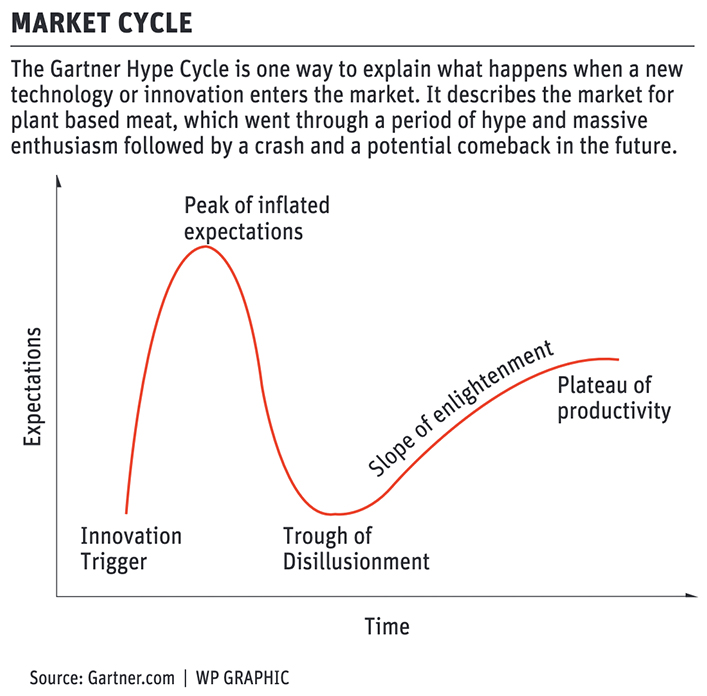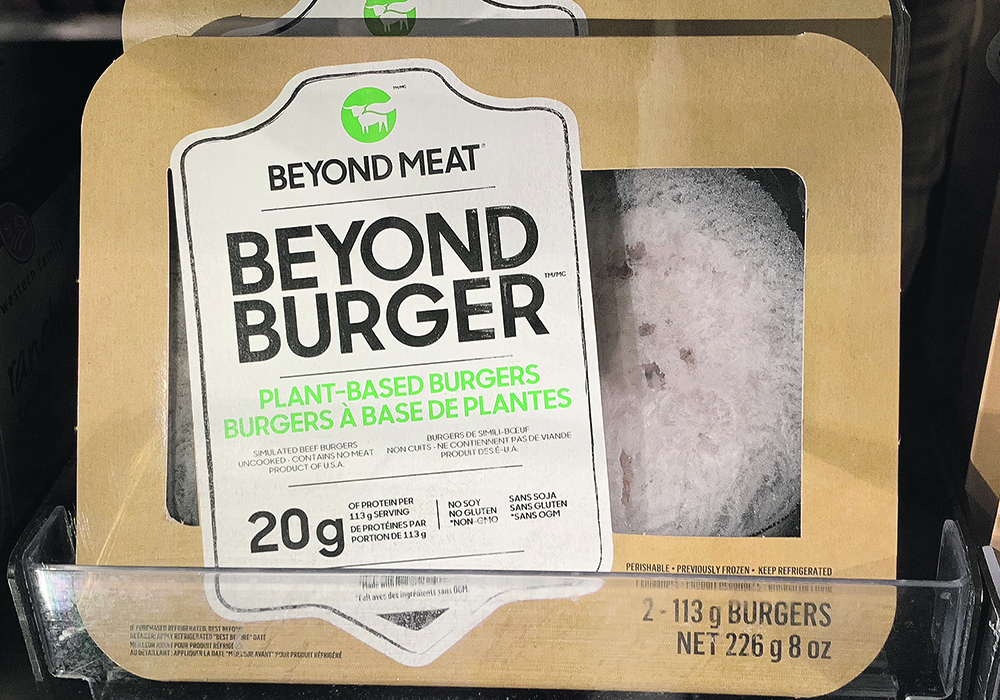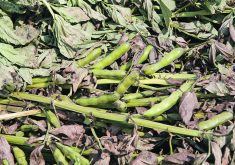WINNIPEG — The stock chart for Beyond Meat Inc. is not a happy story.
In October 2020, Beyond Meat was trading around US$190 per share. This winter and spring the stock was $7 to $9 per share, which means the California company is now worth about $500 million. That’s down from $12 billion in 2020.
Beyond Meat and other firms that entered the plant-based meat business about five years ago were expected to grab a sizable portion of the global protein market.
Read Also

Fertilizer method’s link to emissions studied
A researcher says others studying greenhouse gas emissions aren’t considering how the loss of nitrogen into the atmosphere correlates with fertilizer application or if there is an impact to yield.
“I have never felt more optimistic about the significant potential that still lies ahead for Beyond Meat,” chief executive Ethan Brown wrote in the company’s 2020 annual report.
“Our sights are set on a meaningful share of the $1.4 trillion animal protein market.”
It hasn’t worked out that way.
In 2023, the company had global revenues of $343 million but suffered a net loss of $338 million.
Global sales were down 18 per cent from 2022.
However, a market analyst from Ontario says it’s premature to dismiss the global market for plant proteins and plant-based food.
“Consumers are becoming less carnivorous due to climate change (and) animal welfare concerns,” said Jo-Ann McArthur, president of Nourish Food Marketing, located in Toronto.
McArthur was one of the featured speakers in a May 2 webinar, looking at food trends in North America and Europe.
Like other analysts, McArthur believes that members of Gen Z (people born 1997-2011) will continue to consume meat but eat a smaller amount than previous generations.
She expects a rise in flexitarians, which are consumers who eat animal proteins but will get most of their nutrition from grains, legumes, fruits and veggies. Many in the Gen Z cohort, along with millennials, make purchasing decisions based on the sustainability of the product.
“Everything else being equal (taste and price) … they will opt for the more sustainable option,” said Hamish Renton, managing director of HRA Global, a food industry consultancy in England.
Sustainability has taken a back seat to affordability due to food inflation in the last two years, but McArthur is convinced consumers, especially younger ones, still think about greenhouse gas emissions and other metrics of sustainability at the grocery store.
“It (sustainability) is going to come back with a vengeance, we believe,” she said.
A different plant protein market?

During her presentation in the webinar, McArthur showed a graph called the Gartner Hype Cycle.
The line graph shows how interest in a new technology or innovation will initially explode, but if the product doesn’t meet consumer expectations, demand will fall off a cliff.
That’s the story of plant-based meats from 2019-24.
It doesn’t mean plant proteins and plant-based foods are dead. They will likely come back, but the products in grocery stores and in restaurants could be very different than “fake meat.”
McArthur predicts there will be less “mimicking” of meat.
The new products will be simpler because many consumers didn’t like the dozens of ingredients listed on the package of a plant-based burger.
“Processed food is processed food, regardless of what it is,” McArthur said.
“Moving forward, we’re going to celebrate what’s best about the plant … rather than what it’s replacing.”
Contact robert.arnason@producer.com


















